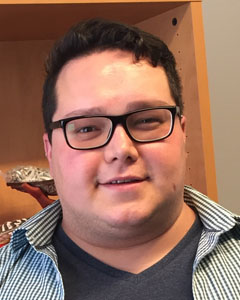COMMUNITY PROFILE: “FINDING ONE’S IDENTITY”
June is National Indigenous History Month and an opportunity to highlight and celebrate the Indigenous community. Skate Canada has done and is continuing to do substantive work in equity, diversity and inclusion but we know there remains critical inclusion work to be done moving forward.
To support an inclusive environment this National Indigenous History Month we are sharing personal stories from our skating community. Below is the story of Clifford A. Mushquash, a member of Pays Plat First Nation in Ontario.
***
When I started out in skating, I didn’t connect very deeply with my Ojibway identity. I was raised in a bi-racial family in Sioux Lookout but I did not have the deep cultural understanding growing up as I do now. Language and traditional teachings weren’t passed along in my family.
The importance of understanding one’s identity and history wasn’t discussed in my formative years as it is now—especially in the skating community. I became a member of the Canadian Figure Skating Association in 1991, when my parents enrolled me in a Learn to Skate program offered by the Sioux Lookout Figure Skating Club. My ice show debut was as a yellow chickadee performing the Bird Dance—yes, the Bird Dance! I have the fond memories of learning to skate and participating at Ice Shows. Now, my involvement in skating is as an assessor/official.
As I grew up, I began to connect with my identity and truly understand my people’s history. Finding my identity and learning my culture wasn’t something that happened overnight. It took many years of listening to and learning from Elders and knowledge keepers before I really understood my Indigenous self. It was through academic study and engaging in difficult conversations that I came to understand what colonization is, and how my family and I have been impacted by it.
wasn’t something that happened overnight. It took many years of listening to and learning from Elders and knowledge keepers before I really understood my Indigenous self. It was through academic study and engaging in difficult conversations that I came to understand what colonization is, and how my family and I have been impacted by it.
Today, I am a proud First Nations person, but acknowledge I have more to learn in order to live mino-bimaadiziwin (live the good life). I’m a trained social worker (with a BA Sociology and Honours Bachelor of Social Work from Lakehead University) and am currently completing a Master’s of Public Health, with a specialization in Indigenous and Northern Health. I work as an administrative assistant for the Indigenous Language Instructor’s Program at the Faculty of Education at Lakehead University. This program trains and qualifies fluent Ojibway, OjiCree, and Cree speakers as Indigenous Language Instructors. This program is aimed towards language revitalization by using Indigenous teaching and learning methodologies. My work and education place me face-to-face with culture and the realities of Indigenous people in Canada. It can be emotionally tiring to do this kind of work but knowing that I am learning while I’m helping brings me fulfilment and energy to continue.
We are at a moment as a country and a sport where we are holding a mirror up to ourselves and taking a real close look at what we need to do so that our sport and society can be more equitable, diverse, and inclusive for everyone. To me, it means I can bring my learning and lived experiences to skating and have it appreciated and embraced. It brings me joy when other officials and volunteers approach me with questions about Indigenous culture or Canada’s colonial history because they genuinely want to deepen their understanding so we can do better together. Skate Canada has a great opportunity to be a leader in how anti-racist and anti-colonial education and action can be done well. Officials and volunteers in the sport can take learnings from equity, diversity, and inclusion education in the skating community and bring it into the other areas of their lives. The organization has set a precedent for other sporting organizations and has offered collaboration, which is the beauty of this work. It makes me hopeful going forward.
Together, we can be champions of this cause.
***
Skate Canada thanks Clifford A. Mushquash for sharing his story and bringing awareness to the skating community.
Skate Canada is pleased to announce an Indigenous Stories in Figure Skating Initiative and invites you to share your story. This initiative to collect the stories of Indigenous peoples in figure skating in Canada is informed by the Truth and Reconciliation Commission “Sport and Reconciliation” Calls to Action (#87-91). We aim to create space for stories of Indigenous peoples in figure skating. Your stories will provide a better understanding of the lived experiences of First Nations, Métis, and Inuit peoples within the sport of figure skating in Canada. Your stories will also support efforts by Skate Canada to increase visibility of Indigenous peoples in figure skating.
Thank you for considering participation in this initiative. Click here to learn more.
